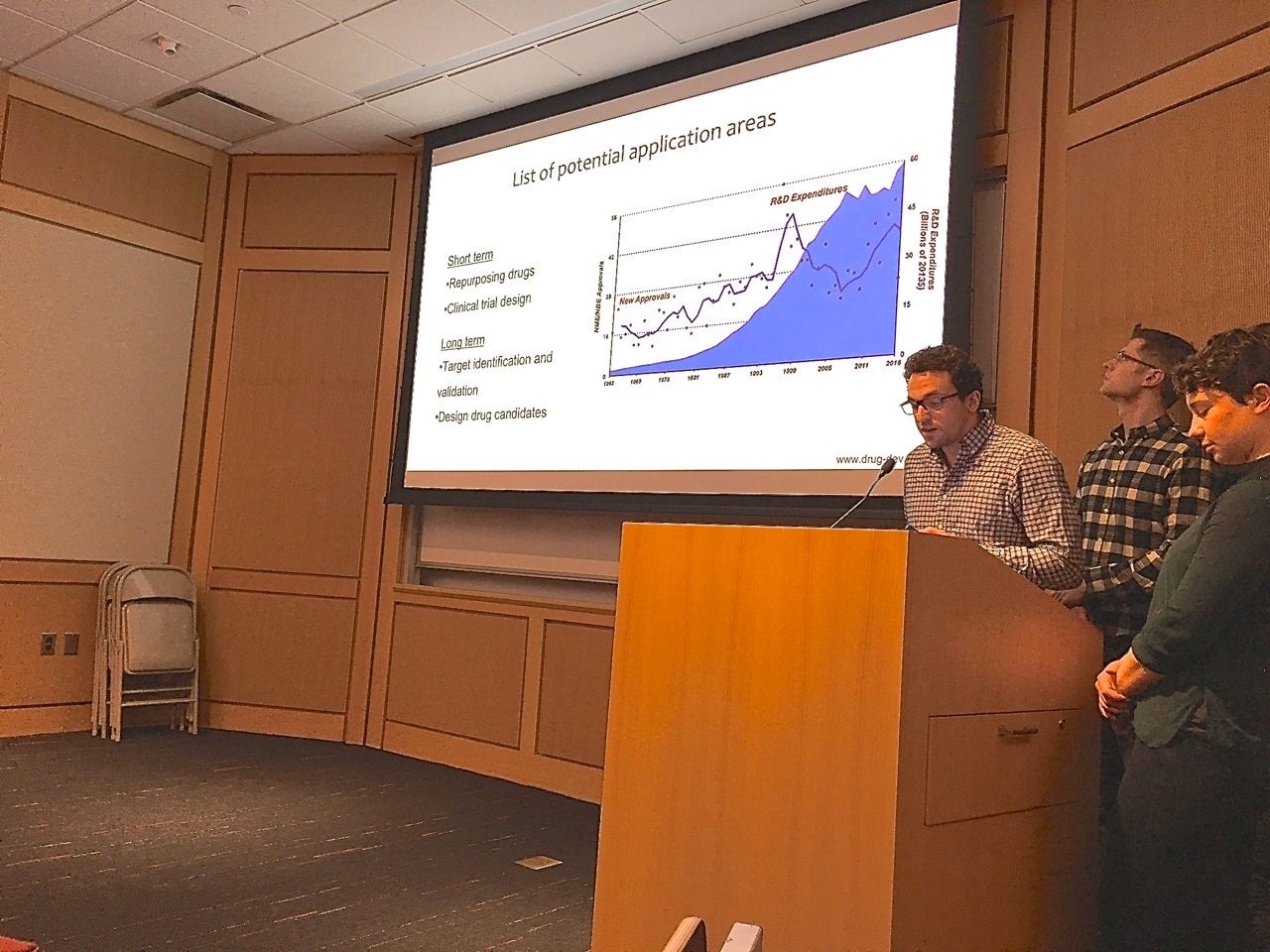The objective of the Admission-to-Candidacy examination is to affirm that the student has attained the breadth of knowledge commensurate with the high standards of the Degree of Doctor of Philosophy; and that the student is ready to undertake full-time thesis research.
Pharmacology PhD students MUST take the Admission-to-Candidacy Exam (ACE) by March 31st of their second year. The ACE Examining Committee consists of five individuals: a chair, three other faculty, and one additional examiner to be selected by the student and approved by the Program Director. The Chair of the ACE exam committee must be a faculty member in the Pharmacology PhD Program, and two of the four other members of the ACE exam committee must be Pharmacology PhD faculty members. Thus, three out of the total of five faculty members on the ACE exam committee, as a minimum, must be Pharmacology PhD Program faculty members. Of course, we encourage students to select all five of the ACE exam committee members from the Pharmacology PhD Program faculty. All examiners must be faculty members in the Weill Graduate School of Medical Sciences.
The Admission to Candidacy Examination (ACE) consists of two parts: written and oral. For the written part, the student crafts a research proposal that poses and tests a novel hypothesis, in a subject area that can either be the topic of the student's intended thesis research or a research topic unrelated to his or her thesis research. The selected hypothesis is expected to be creative, insightful, and testable by an experimental plan devised by the student. The proposed experiments should be of a magnitude and scope suitable for a fellowship application, i.e. realistic for completion by one graduate student in a 2-3 year time frame. Once the ACE topic is approved by the Program Director, the student is free of all responsibility to the thesis lab and given one month to write the written proposal. The P.I. of the lab should NOT assist the student in preparing the written proposal. Once the written component of the ACE has been prepared by the candidate, and before the remainder of the ACE committee receives the written portion, the PI must sign off on it, indicating that it is the candidate's own work, and that he/she has not read the proposal. An email to this effect to the Program Director, cc'ed to the Program Coordinator, Aileen Rosales, will suffice. The text of the written proposal must exactly follow the NIH F31 fellowship format (the format layout, margins, font size, page limits, etc.). For the latest F31 formating instructions from NIH, click here for the format instructions and here for more information. This F31 format has one page for specific aims, and 6 additional pages, not counting references. The student distributes the written proposal to each member of their ACE Committee two weeks before the exam. After submission, the student may discuss the proposal with the faculty members of his/her ACE Committee. The student schedules the oral exam for approximately two weeks later. This oral exam should be scheduled in advance of submitting the written proposal. The oral exam is intended to test the student's factual knowledge of pharmacology and related disciplines as well as his/her ability to process, organize, and evaluate scientific data.
The student is required to follow the rules, and complete the following form and deliver it to the Graduate Program Coordinator (who will deliver it to the Graduate School office) at least two weeks prior to the due date of the written portion of the exam (and at least four weeks prior to the date of the oral portion of the exam).
Some important points about the ACE exam:
A. FORMAT OF THE WRITTEN PROPOSAL: The format should follow the NIH F31 format exactly.
B. The student's thesis advisor should not read the ACE proposal until just before the exam, when other ACE Committee members have the proposal as well; should not share any grants or other types of proposals on the ACE topic with the student prior to the ACE exam; and should not answer any questions for the student or defend the student's answers during the oral exam.
C. The ACE proposal must be the student's own writing. The definition of plagiarism is:
- to steal and pass off the ideas or words of another as one's own
- to use another's production without crediting the source
- to commit literary theft
- to present as new and original an idea or product derived from an existing source
Students should not copy or paraphrase any writing from their thesis advisor or other students and fellows in the thesis lab. Students should also not copy or paraphrase any writing from published research articles or reviews related to the topic of the ACE proposal. (Plagiarism is a very serious type of misconduct and can lead to a student's dismissal from the program). If any lab or published paper "Powerpoint" slides are used in the written or oral presentation for the ACE, the student must attribute the slide to the source. If any experiments or other data/tests, etc. are used in the written or oral presentation, the student must indicate if he/she actually generated the data and if not, must attribute the data to the proper source.
D. Students must submit a Predoctoral Fellowship application to NIH or another government source or a private foundation within one year of completing and passing their ACE exam. This should be done with the assistance of the student's thesis advisor/mentor. Failure to do so could result in the thesis mentor not being renewed as a faculty member in the program, as this is part of the mentoring of the student by the advisor. For assistance and details on submitting fellowships at this time, you can contact the Senior Grants Administrator for the Grad School, Dr. Nora McCall: nom4007@med.cornell.edu. For additional information on WCGS Fellowship opportunities and Scientific Writing Resources, click here.
E. Each student must have his/her first thesis committee meeting within three months of passing the ACE exam. Failure to do this could result in the student being placed on probation (not in good standing).
[Updated 10/2022]



